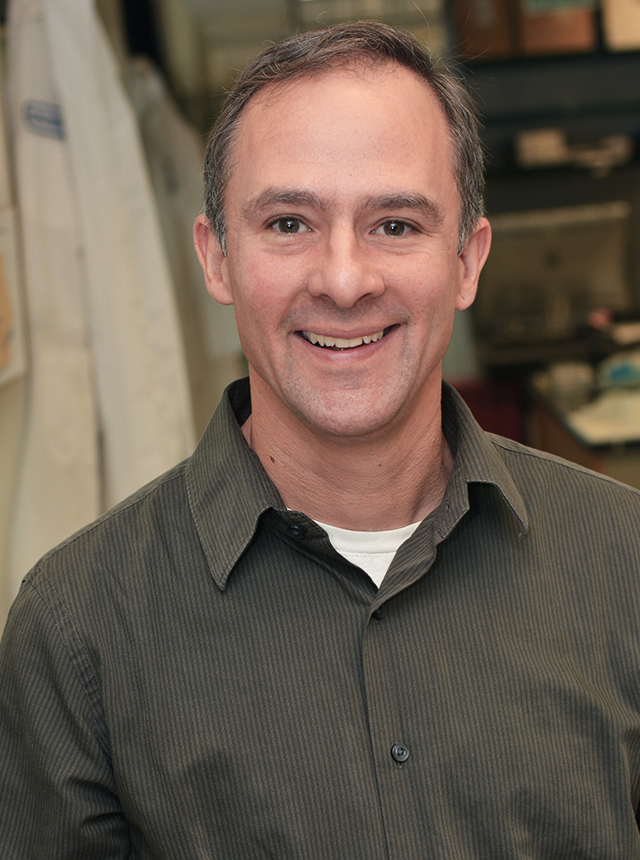
PHILADELPHIA (December 3, 2019) – A Fox Chase Cancer Center researcher has been awarded a $1.4 million grant by the U.S. Department of Defense as part of its mission to address important challenges and issues in breast cancer treatment and survival. The goal of this project is to evaluate and exploit the mechanisms of inducing programmed cell death using polyunsaturated fatty acids in triple-negative breast cancer (TNBC).
Jeffrey Peterson, PhD, associate professor of cancer biology with the Breast Cancer Translational Research Disease Group at Fox Chase, will expand upon his previous studies showing that TNBC cells have an increased reliance upon the antioxidant glutathione to avoid cell death through ferroptosis, a form of programmed cell death.
The antioxidant-dependency is also linked to the tendency of cancer cells to scavenge for and accumulate polyunsaturated fatty acids (PUFAs). As these are metabolized, the concentration of reactive oxygen species increases, which leads to cell death.
“We are very excited about these findings, because in addition to blocking tumor growth, the polyunsaturated fatty acids also block metastasis, the most feared and deadliest aspect of cancer,” Peterson said. “This fatty acid therapy has the potential for revolutionizing the way TNBC is treated.”
It is well-known that TNBC is a subtype of breast cancer that disproportionally affects young and African American women, as well as having a poorer prognosis. Its unresponsiveness to current targeted therapies, a limited understanding of the cellular mechanisms underlying its aggressive nature, and its propensity to metastasize are leading causes of concern for researchers.
Peterson is confident in his hypothesis that metastatic cells may be particularly susceptible to preferential uptake of certain PUFAs that will trigger ferroptosis and destroy the cancer cells while leaving normal cells largely unaffected. Additionally, the conjugated linoleic acid used in this study is abundant in certain plant species, considered generally safe to be administered orally, and presents an inexpensive means of targeted cancer therapy.
“Our observations have shown that these fatty acids act almost like a Trojan horse,” said Peterson. “The cancer cells think they are taking up a nutrient, but it is reactive and can initiate a damaging process, making it a struggle for the cells to survive.”
Working with postdoctoral research fellows Alexander Beatty, PhD, and Tanu Singh, PhD, Peterson’s goal for the three-year grant is to do everything necessary to set the stage for starting clinical trials.
The study will address some of the critical challenges in breast cancer research, which includes potentially replacing current treatment regimens with ones that are more effective and less toxic, as well as eliminating the mortality associated with metastatic breast cancer. Peterson’s lab was among the first to demonstrate that breast tumor growth can be inhibited by triggering ferroptosis, as well as the only lab to have identified the anti-TNBC activity of these fatty acids.